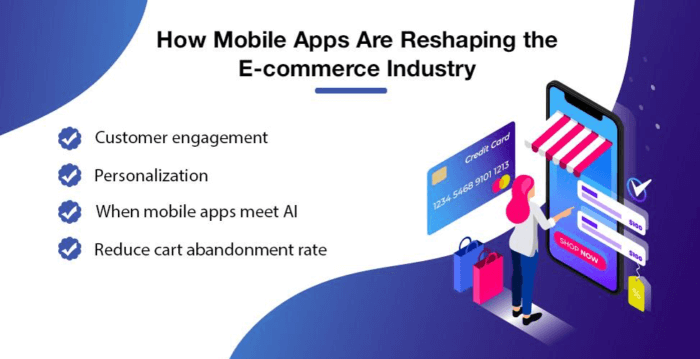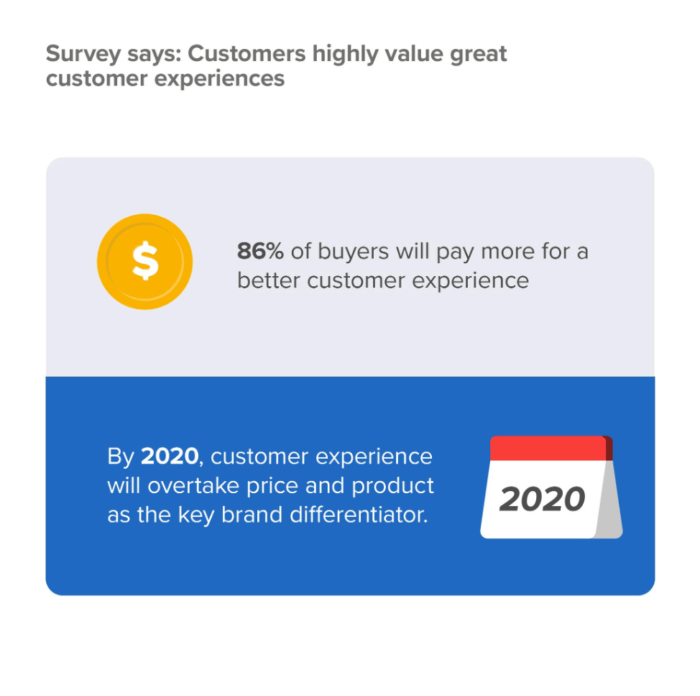Customers are not only looking for a great product or service but also the most convenient and appealing way to get it - ie, mobile apps.
So, there’s no uber to take you to your destination; no Google Maps to help you find the way; no Zomato to satiate your cravings, or no Amazon app to order that item in your wishlist.
How does that sound? Scary?
It is.
That is the magnitude by which mobile apps have consumed our lives.

In recent times, we became dependant on our apps for pretty much everything.
But why did the transition happen? If most of the things that a mobile app does, can happen via a website too, then why have apps taken the front seat?
The answer is simple - convenience.
According to
Walker study, it is reported that by the end of 2020, customer experience will take over price and product as the key brand differentiator. So, it is a must that customer experience plays an important part in your business in 2020.
So, now you know what customers are looking for. They are not only looking for a great product or service but also the most convenient and appealing way to get it.
This is where mobile apps come in.
When everything lies at the tip of our fingers, quite literally, why would a customer want to go through the hassle of doing the same thing through a website?
If that wasn’t enough, here are some obvious revelations that answer why customers prefer mobile apps to a website:
Apps are focussed
Unlike websites that have a plethora of information about the company, mobile apps are focussed on a particular purpose. The user, in this case, finds it convenient to access exactly what they are looking for. So, instead of browsing through an exhaustive website, the customer prefers to go for single-click solutions.
Built for smartphones
This one is obvious. It is only because of our dependency on smartphones that mobile apps flourished in the first place. Mobile apps are built in a way that means they are capable of utilizing most of the features of our smartphones. They leverage the camera, Bluetooth, GPS, etc. of mobile devices. This feature facilitates the online payments to - the app user can use the phone camera to access the QR codes.
Offline features
We all know the frustration that slow internet connection induces. Unlike websites, some of the mobile apps take care of that and include some off-line features too. Apps also allow you to manage how much internet you want to invest in them. That’s the reason we have a Facebook lite for the Facebook app or skype lite for the skype app.
Easy navigation
There’s no doubt about the fact that our smartphones are getting smarter day by day, and we don’t want to miss out on the convenience they offer. A smartphone offers pretty much everything that your laptop offers. So, don’t you think a customer will prefer to navigate smoothly through mobile apps rather than websites that are not even mobile-friendly?
Apps are quick
If you’re given two choices - order an item from the Amazon app or order the same from their website - what will you choose? You have your answer.
Why would a customer want to go through the hassle of typing a URL in the browser, waiting for the site to load, find the item they looking for, wait some more as each page uploads, and then complete his task if he can do the same in a matter of few clicks? Mobile apps are fast compared to websites and this enhances the customers’ shopping experience - and that’s all they're looking for.
The best business types for mobile apps
These are the reasons why you can't miss out on having a dedicated mobile app for your business. This makes me land on my second point - which business do you think needs mobile apps the most?
E-commerce.
Yes, e-commerce businesses need mobile apps the most. I'll tell you why.
Retail apps are one of the top four most frequently surfed apps on customers’ devices. Also, 62 % of smartphone owners mostly use mobile apps for purchases.
Customers prefer mobile e-commerce to make purchases because of all the reasons we just discussed.
However, mobile apps are reshaping the e-commerce industry because of reasons beyond that. Let us know about them.

Customer engagement
Mobile apps offer way better customer engagement as compared to websites. As customer engagement is becoming wildly important, mobile apps are considered as the most unique way to engage with your customers. Now, you must be thinking how? They do so by utilizing smartphone features. Here’s how:
GPS
GPS detects the customer’s location and mobile apps can then display whether or not the product is available for delivery in that particular area and the number of days required to deliver the product. GPS also allows mobile apps to automatically feed the address while checking out.
Moreover, the GPS feature allows the customers to track the location of their objects online in real-time and know the whereabouts of the product. Choose from the maps like Google, Waze, Satellite, OSM and more. Check additional information about the tracking objects like its speed, exact address, and more.
Audio- search
Mobile apps do not even require the user to type a product’s name, they can simply use the audio-search feature. With increasing audio search, most people demand this feature in an app to search for an item without typing its name. In short, the audio search feature is a must for your e-commerce app.
Image sharing
Another interesting feature is that mobile apps allow easy sharing of item’s images on platforms like Instagram, WhatsApp, Facebook, Pinterest, and other social media platforms. This can help customers get reviews from their peers and facilitates quick decision making. Whether it is a single image or a lot of images of the product, one can share it on platforms to ensure the product quality and type.
Personalization
Mobile apps offer a highly personalized experience to the user. It is because of this interactive interface that customers spend more time on the apps which in turn increases the chances of sales. To achieve personalization in the app, it requires features like pop-ups or dialogue boxes, searches recommendations by location and rewards or discount offers.
- Push notifications are used to send personalized messages to customers regarding ongoing deals, discounts, and new arrivals. The notifications keep reminding your customers about your app, products that they have added in the cart and availability of their added item.
- Personalized rewards like free items, additional discounts, or cash backs are another way to gain loyalty from the customers. Through discount deals, offers, and rewards, you can win your customer’s trust and allow them to buy the product from your app by saving money.
When mobile apps meet AI: Artificial Intelligence makes mobile apps even more appealing. Owing to chatbots, you can easily get answers to your queries 26/7, 365-days a year. Users can also leverage visual search wherein they will be able to search for the product through visuals rather than words.
Download our Business Resource – E-commerce success mapping
This template introduces an analytical approach which we think is particularly useful for improving results from e-commerce site marketing, but can be applied to other types of sites and online marketing activities also.
Access the E-commerce success mapping
Talking about the AI chatbots, they allow users to browse the latest collections. The chatbot makes use of natural language processing not only to reply to customer queries but also provide style advice and product recommendations. By asking different questions, chatbot collects information about the user’s style preferences and make an outfit suggestion based on the collected data.
Reduce cart abandonment rate
Because of the long and complicated checkout process, around 70% of customers abandon their shopping cart during checkout. Mobile apps prevent that from happening owing to their one-click checkout process. Mobile apps can also save the credentials of various payment methods which makes the checkout even more smooth.
Conclusion
According to one survey, approximately two-thirds of e-commerce traffic directly comes from mobile apps and around 89% of the users are happy to use mobile apps when it comes to placing orders online.
So, all these numbers are showing that mobile apps are more convenient than websites and allowing to indulge more to online shopping.
Not only this, mobile apps have bridged the gap between businesses and customers, bringing them closer. Now that you know the ways - when are you doing the same?
Varsha Solanki is a Digital Marketing Strategist at
Space-O Canada, a Software Development company. She has three years of experience in the Information Technology industry. She spends her time reading about new trends in Digital Marketing and the latest technologies.










